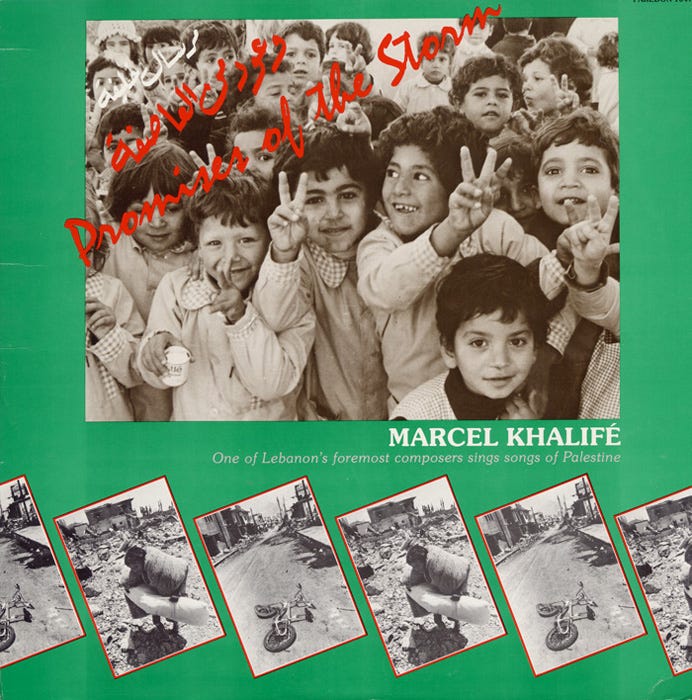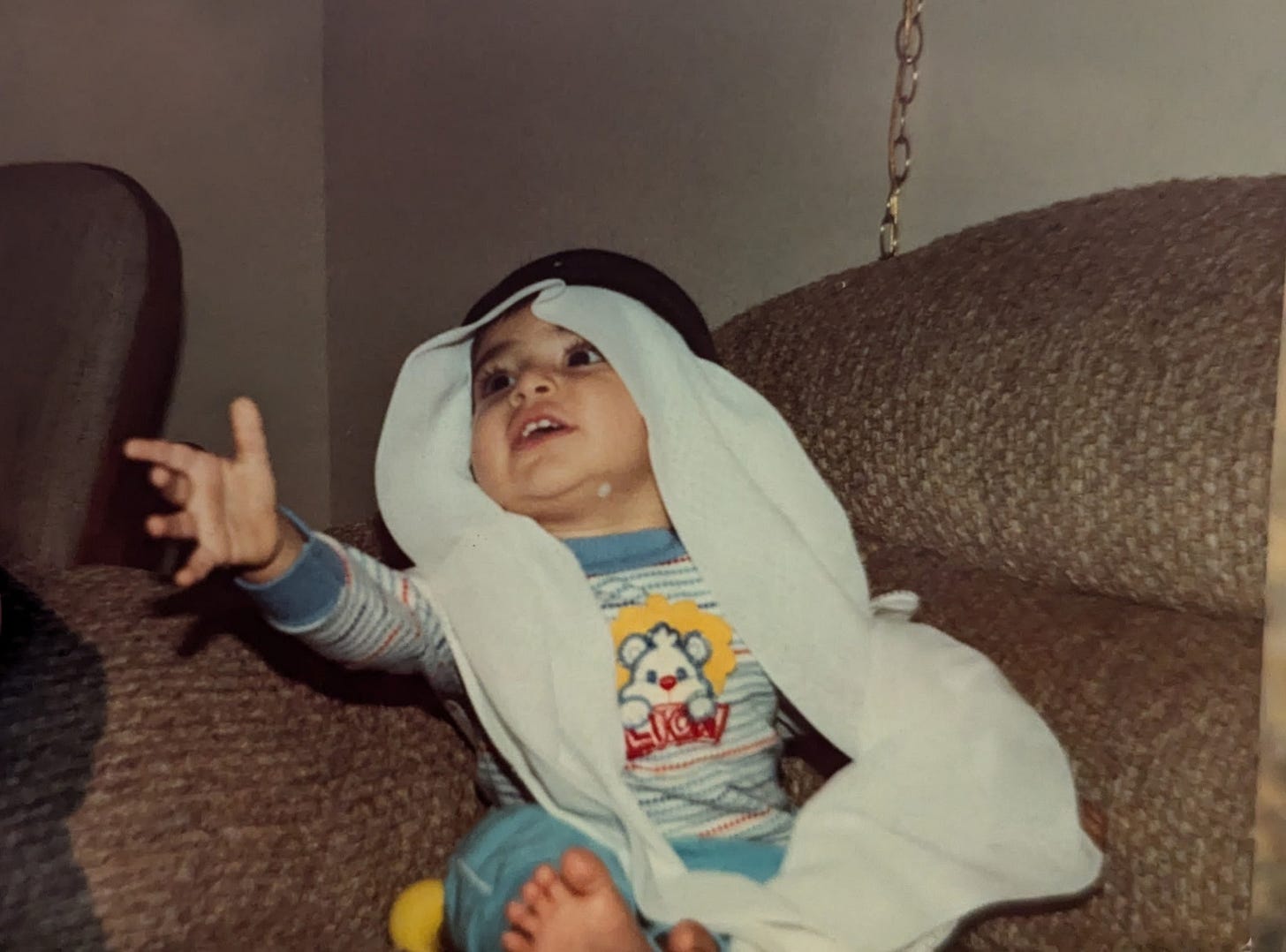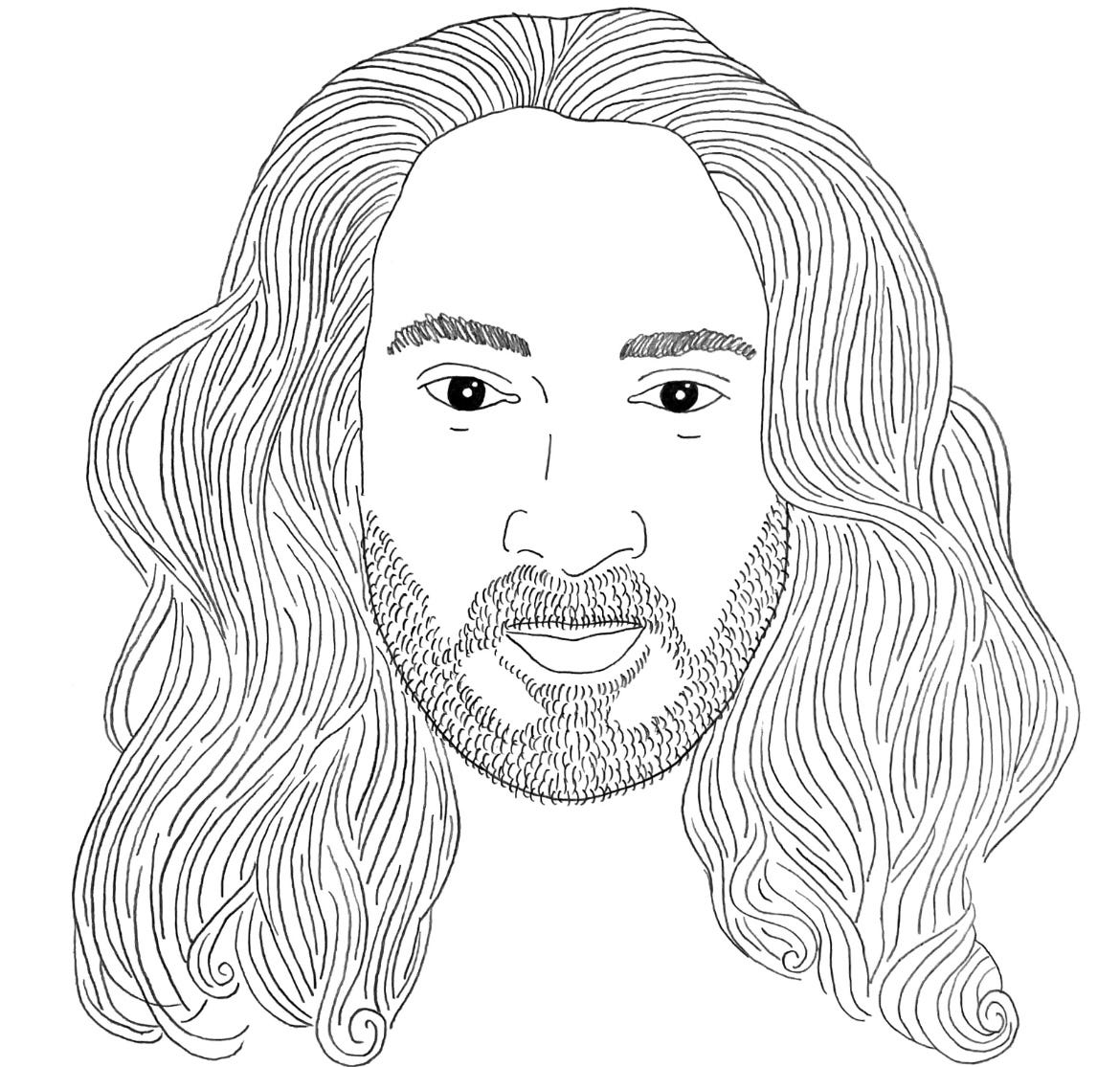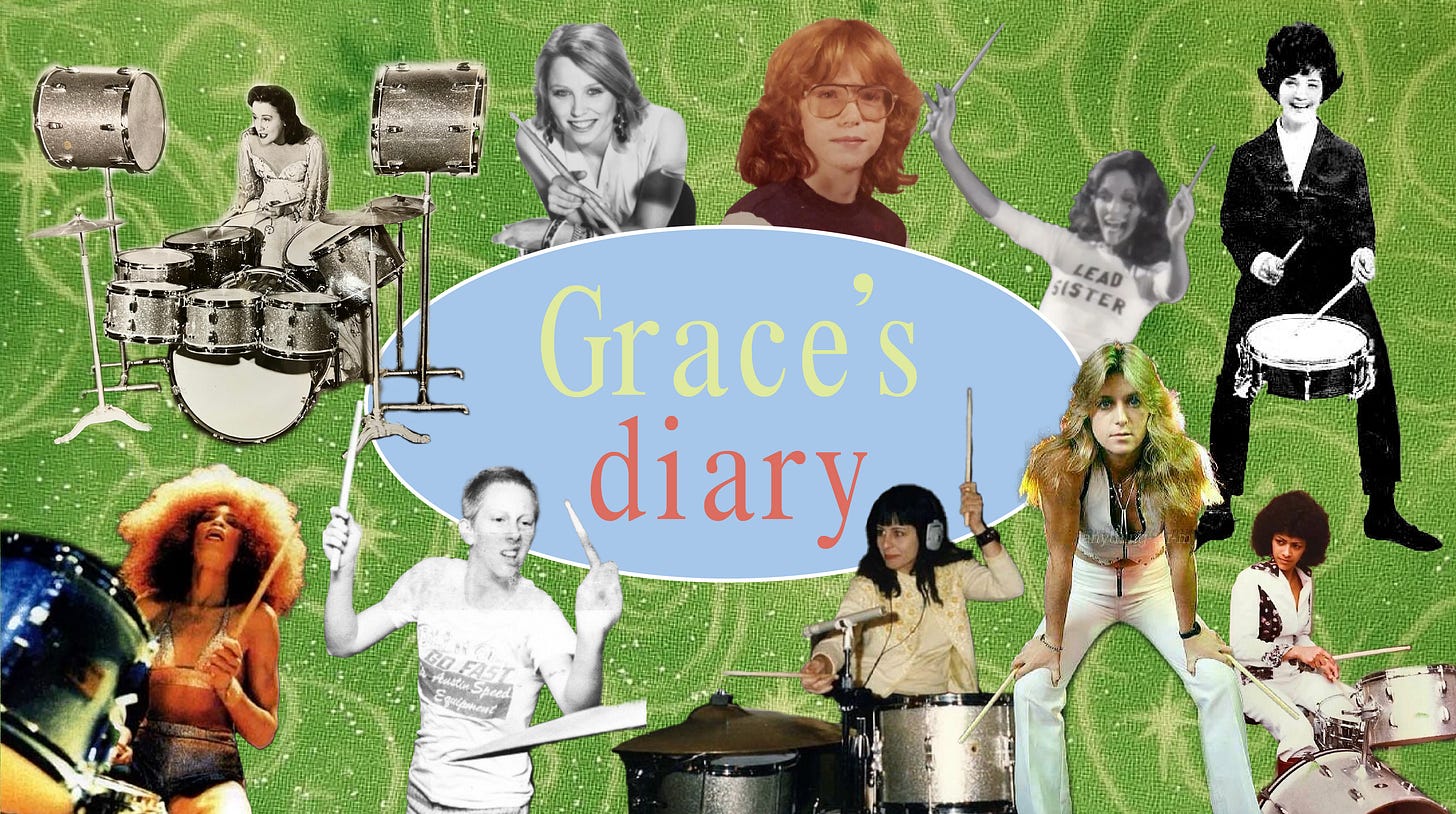No. 113 - Marcel Khalife’s “Rita and the Rifle” changed my life
Yasar Hussain’s human alarm clock
🌸 A Grace favorite
This Song Changed My Life is an independent music publication featuring weekly essays from people all around the world about the songs that mean the most to them. Created (and illustrated) by Grace Lilly.
Enjoying the series? Support here to keep the good stuff coming 😊
• 4 min read •
The world’s most obnoxious alarm clock woke my sister and me up nearly every morning: our father belting out songs I couldn’t stand in Arabic. The worst of them was by a Lebanese singer named Marcel Khalife. I could only understand bits and pieces of his Lebanese dialect and his songs felt like they would never end. My parents would make us watch his concerts on TV and listen to his CDs constantly. No matter how much my sister or I would ask to listen to anything else, the answer was always either “No,” or, perpetually, “After this song.”
What we didn’t realize was that my parents were trying to instill their culture in us. They both immigrated from Iraq as students and, as I found out over 30 years later, were planning on moving back there at some point. Arabic was the first language I learned. My parents didn’t have any non-Arab friends so I was constantly surrounded by the language, the music, the movies, the food, all of it.
Going to preschool changed all of that. When I started to learn English, I developed a stutter. My parents took me to a doctor who explained to them that learning two languages was too difficult for me so they had to choose one and stick with it. My parents chose English because my education was more important to them than anything. Not long after, I forgot how to speak most of my Arabic, although I could still understand it. It wasn’t until my grandparents moved to the US that I relearned it because they didn’t understand English.
By the time I was in high school, I felt I had two separate lives. The one with my family and their friends, and the one with my school friends. It felt like I was simultaneously part of both cultures yet not really part of either. My family friends would laugh when I said I was Iraqi, yet all of the Americans would insist on knowing “where you’re from” when I said I’m American. Being part of two very distinct cultures can feel powerful, but it can also feel isolating when it seems like neither side really considers you as one of them. I suspect this is a very common experience amongst first generation children but I rarely hear it discussed.
It probably wasn’t until the Arab Spring that I first felt proud to be from the Middle East. Countries all over were standing up against the conditions they were living in and they were going to fight for change. These were my people. All of the bigots saying Arabs don’t really want democracy proven wrong, country by country. Peaceful protests bringing down dictators before my very eyes.
I read the news religiously about the protests in Egypt but something was missing. When I was younger, I would always hear both sides of the news: the western media’s news coverage and the Arab news coverage, through my parents of course. I decided I should probably learn how to read and write Arabic. This was something my parents had tried pushing me to learn when I was younger, but I had refused on the grounds of it being a lot of effort for something I would probably never use.
I already knew the language, so I really just had to learn the alphabet. That’s what I did, and with the help of Google Translate I was able to start texting my parents in Arabic after a couple of days. A few weeks later I was able to read some news in Arabic. At this point, The Arab Spring had taken a turn for the worse, with the wars starting in Syria and Libya, so I kind of lost interest in it. I decided I should use my superpower of reading Arabic to try to read some of the lyrics to Marcel Khalife songs. Mostly because I was curious what kind of weird shit my dad was singing to me all of these years.
The song I started with is called “Rita and the Rifle.” The lyrics drew me in, they read like poetry:
Rita’s name was a feast in my mouth
Rita’s body was a wedding in my blood
The translation sounds dumb; it sounds much better in Arabic. I later found out that this was indeed poetry, written by a Palestinian poet named Mahmoud Darwish. After playing guitar a little in high school, I had an appreciation for the oud, an instrument I previously found slightly more tolerable than nails on a chalkboard. I loved everything about the song and came to a bittersweet realization: I had been holding myself back by never letting myself ever become too Iraqi or too American. I had been missing out on so much of the cultures that had been in front of me for so long, literally waking up to this song every morning.
A few years ago I surprised my parents with tickets to go see Marcel Khalife in Berkeley. I don’t remember why my alarm clock couldn’t make it, but I vividly remember enjoying every second of the show with my mom. I called my dad recently to ask him if he remembered why he couldn’t come along. He started singing “Rita” and then informed me it was his favorite song. When I said I knew, he laughed and said, “I guess it played it enough for you.” I guess not. ◆
About Yasar
Yasar Hussain is just a dude. He enjoys growing mushrooms and gardening with his wife Cameron. He’s also building a sailboat.
⭐ Recommended by
Eric Drobny (No. 087)
Every TSCML writer is asked to recommend a future contributor, creating a never-ending, underlying web of interconnectivity 🕸️
🔒 Unlock this post with a paid subscription
Diary 💗 10 Influential women drummers
A brief and fun history of women who drum. Read→
🔒 Unlock this playlist with a paid subscription
Ultimate Halloween Playlist 🎃
Spooky classics for my favorite holiday (plus: October’s surprise album recommendation). Listen→
This Song Changed My Life is open to submissions. For consideration, please fill out this simple form.
If you enjoyed this post, “like” it & leave a comment 🧡
Categories
Friendship • Family • Coming of Age • Romance • Grief • Spirituality & Religion • Personal Development
Recommended









